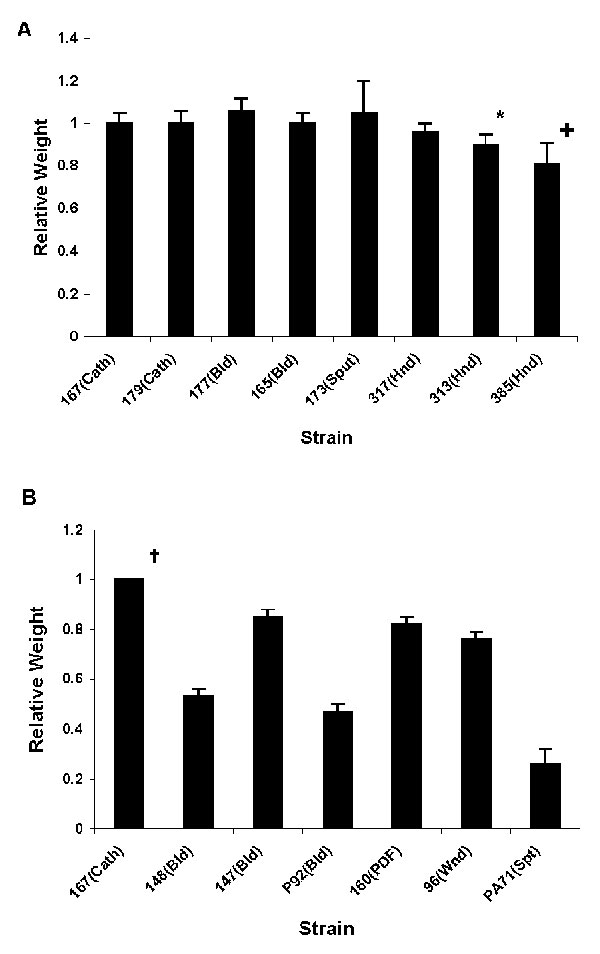Volume 10, Number 6—June 2004
Research
Candida parapsilosis Characterization in an Outbreak Setting
Figure 4

Figure 4. Relative dry weight of biofilms formed by Candida parapsilosis clinical isolates. Panel A shows relative dry weight of the C. parapsilosis strains from outbreak investigations by the Centers for Disease Control and Prevention from various culture sources. Results were normalized to control C. parapsilosis strain 167, which was taken as 100%. Each result is representative of at least two experiments. Error bars represent standard deviation. *p = 0.001 and +p < 0.001 for dry weight comparison of 167 vs. 313 and 385, respectively. Panel B shows relative dry weight of the University Hospitals’ C. parapsilosis strains from various culture sources, also compared to strain 167. †p < 0.0005 for comparison of dry weight values of 167 vs. all others. (For details of methods used, see text.) Cath, catheter; Bld, bloodstream; Spt, sputum; Hnd, hand; Wnd, wound; Pdf, peritoneal dialysis fluid.